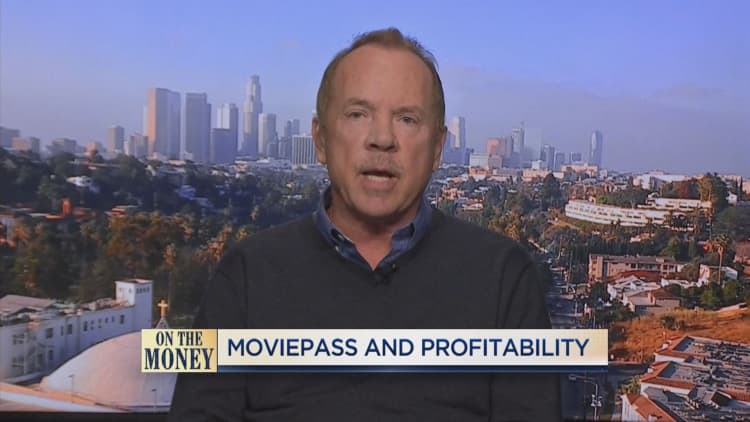
Movie theater ticket sales hit a 20-year low in 2017, but one rapidly growing subscription service is trying to get more people into theaters by cutting its already low prices – and expanding into new ventures.
MoviePass, which launched in 2011 and now boasts more than two million subscribers, allows users to see one film in theaters every day for a flat monthly price. Membership has skyrocketed since Mitch Lowe took over as CEO this past June, and he slashed fees from $30 a month to $9.95.
In just two days after the fee reduction, sign-ups shot up by 150,000.
Now the company is cutting prices even more. Last month, MoviePass reduced subscription fees by 20 percent to $7.95 per month. Coupled with the growing number of cinemas that accept the card – currently 91 percent of U.S. theaters – subscriptions are set to keep growing.
But even with subscriber growth on the rise, MoviePass reimburses most cinemas in full for each ticket (except for a few that offer them a 20 percent discount). In many high-priced markets such as New York and San Francisco, tickets cost much more than their $7.95 monthly fee.
So, how does the company break even?
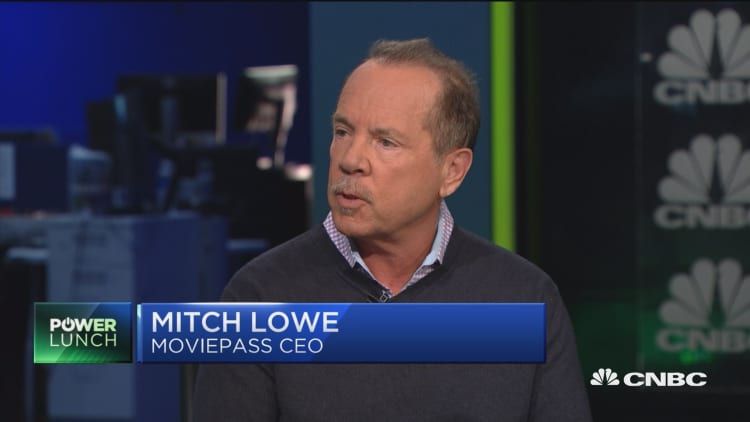
"Like an all-you-can-eat buffet or any unlimited service, when subscribers first start, they gorge on movies in the first three or four months. Then they slowly but surely settle into a pattern which is still double what they used to do," Lowe explained.
"Our target is someone who only spent $50 last year going to the movie theaters – and now at $9.95, they're spending $120 at movie theaters a year," the CEO added.
Lowe's data shows that subscribers may attend four to five films per month in the first few months, but they will likely settle into 1 movie per month soon after – enough to justify the price and just enough for MoviePass to break even.
Along with raising national movie theatre attendance by 101 percent, this pattern has also created a 123 percent increase in high-margin concession stand sales.
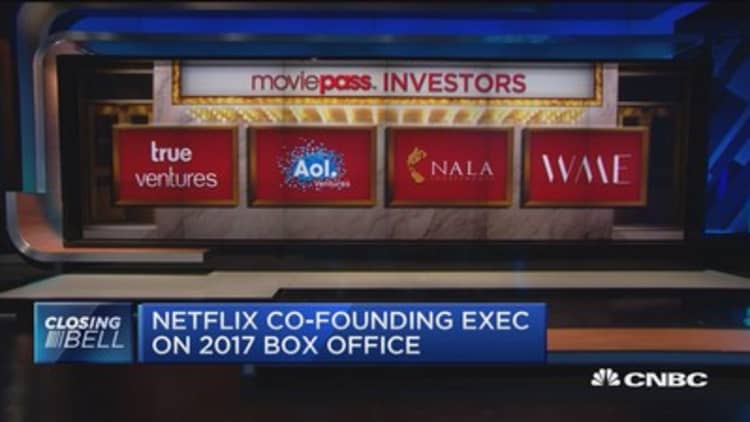
However, MoviePass doesn't make any money from subscribers once they're at the theater – they don't get a cut from commission sales, for example – so the service is expanding into other revenue channels.
At the Sundance Film Festival last month, the company announced MoviePass Ventures, a subsidiary that will co-acquire distribution rights for independent films. MoviePass plans to market these indie films to its subscribers through its app and email lists using its wealth of data on viewers' tastes and movie-going habits. Then, revenue from the film will be shared and used to co-acquire its next project.
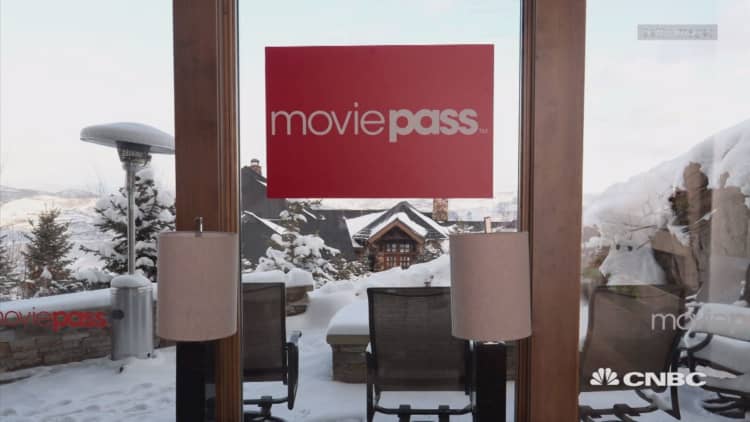
MoviePass quickly saw success with its first partnership with NEON and 30WEST in marketing "I, Tonya." Just weeks after Sundance, MoviePass locked down deals with six other studios – two major and four indie.
Since MoviePass subscribers have been attending movies twice as frequently as they used to, Lowe says that almost all the extra films they're seeing are small, indies.
"Subscribers kind of use MoviePass like 'movie insurance' where a film that we tell them about might not have had sufficient marketing or they might not have heard of it, but they're going to take a chance because they have no incremental cost of going," Lowe said.
And MoviePass' rapid growth isn't benefitting the company alone – it's having a significant impact on the film industry as a whole.
'"Currently we're buying about 5 percent of all the movie tickets in the U.S. every week. But when we promote a film, we are buying about 10 to 11 percent of all the movie tickets," Lowe explained. "So we're able to lift films – and this isn't 'Star Wars' or 'Thor' – these are 'Ladybird,' 'Three Billboards,' 'I, Tonya.' We're able to add up to 8 percent of sales to their bottom line."
Increasing movie ticket sales is especially important because how a film does at the box office often determines its longevity.
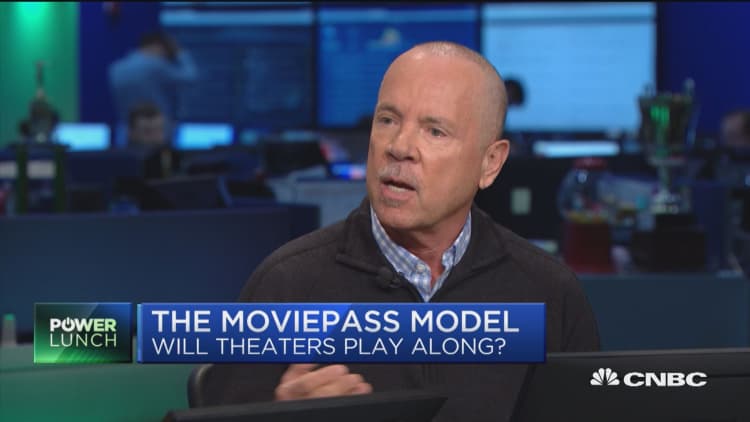
"When you increase the box office, every one of those dollars translates to two, three and more dollars in downstream revenue – it makes the sale to Netflix better; it makes the foreign rights higher," Lowe said.
Lowe's ultimate goal is showing the film community that MoviePass is a valuable part of the ecosystem.
"As we start to prove MoviePass' positive benefit, we really want to share in the added profit," Lowe noted.
"We don't want to cannibalize. We want to figure out together with exhibitors and studios what additional or incremental profit we're generating for them – then sit down business to business and figure out what's our fair share of the increase – whether it's a discount on tickets or concession revenue," he said.

